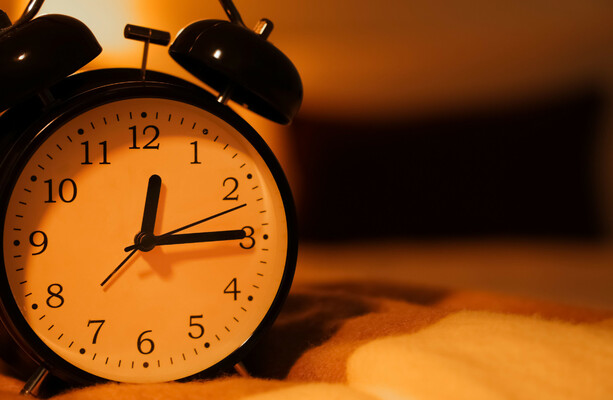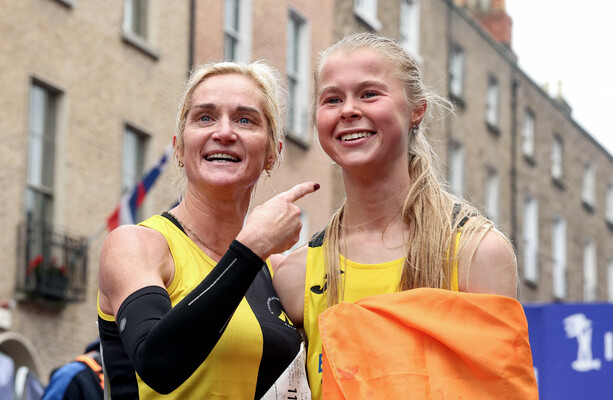Copyright thejournal

We need your help now Support from readers like you keeps The Journal open. You are visiting us because we have something you value. Independent, unbiased news that tells the truth. Advertising revenue goes some way to support our mission, but this year it has not been enough. If you've seen value in our reporting, please contribute what you can, so we can continue to produce accurate and meaningful journalism. For everyone who needs it. One-off amount I already contribute Sign in. It’s quick, free and it’s up to you. An account is an optional way to support the work we do. Find out more. Investigates Investigates Money Diaries The Journal TV Climate Crisis Cost of Living Road Safety Newsletters Temperature Check Inside the Newsroom The Journal Investigates Daft.ie Property Allianz Home The 42 Sport TG4 Entertainment The Explainer A deep dive into one big news story Sport meets news, current affairs, society & pop culture have your say Or create a free account to join the discussion Advertisement More Stories Alamy Stock Photo Clocks Going Back As the time on the clock goes back, make sure you're listening to your body clock too As the clocks go back this weekend, maybe it isn’t just the hour change we need to rethink, writes Dr Catherine Conlon. 7.01pm, 25 Oct 2025 Share options SOME OF US are early birds – tending to go to bed and wake up early, with more energy in the first half of the day – while others are more likely to be full of beans in the evening and night hours. Whether you are an early bird or a night owl depends to some extent on your genetics, but more evidence is emerging of how this variation is influenced by our individual circadian rhythms. That explains why at parties or weddings, while some are ready for bed at 10pm, other revellers are getting ready to party late into the night. Your circadian rhythm is your body’s internal clock. Light, sleep patterns, hormones, meals and temperature can all influence your circadian rhythm, which in turn can influence your overall health. Athletes understand the impact on their performance. Olympic athlete Usain Bolt and former tennis star Venus Williams insisted on up to 10 hours’ per day, while Roger Federer is reputed to sleep 12 hours a day; and most athletes insist on at least eight, with many sticking to a rigid routine built around nutrition and sleep. Twice a year, that balance between time clocks and our body clock is upended by a changing the time by an hour to maximise daylight hours. This weekend sees clocks going back an hour at 2am in the early hours of Sunday. The question of whether this change is a good idea remains controversial. The daylight savings debate Daylight saving time has a long history. In 1916, during the First World War, Germany decided to bring in the time change in March 2016 as an energy saving gesture, followed by the UK two months later. As Ireland was part of the UK at the time, the same rule also applied in Ireland. In 2019, following a poll in 2018, the European Parliament voted to make the final clock change in the spring of 2021, but it never happened. Professor David Malone from the Department of Mathematics and Statistics at Maynooth University suggested in 2021 that if we do decide to opt out of daylight savings, we need to decide if we are going on all in on summertime or wintertime. “If we stay on summertime, which sounds very nice because we think of nice long evenings in the summer, you have to play that off against the very dark winter mornings, which I guess, we’re kind of trying to avoid with going to wintertime. If we stayed in summertime for the whole year, sunrise would actually be after 9.30am in Dublin for basically all of December and all of January. Malone recounts how we actually tried this from 1969 to 1971. “There was an experiment when Ireland and the UK were thinking about joining the EU, and for those year we stayed on summertime for the whole time. Initially, everybody thought it would be a great idea, but pretty soon, once you go through a winter with those very late sunrises, everybody started to change their mind.” Synchronised clocks in Dusseldorf, GermanyAlamy Stock Photo Alamy Stock Photo How does the clock change to maximise daylight savings affect us? Last year, a group of scientists at Liverpool John Moores University and the University of Oxford decided to do a nationwide survey in the UK to consider the impact of daylight savings on people’s daily lives. Over 12,000 people responded to questions about stress, wellbeing, and life satisfaction. They answered the survey in the week before the clocks went back and re-completed it immediately afterwards. Advertisement The survey somewhat surprisingly, found that women’s health and wellbeing suffered in the immediate aftermath of the clocks going back while men experienced greater wellbeing and greater satisfaction with life. The real question is, what does this tell us about the way men and women experience time? The survey found that women were more likely to associate the autumn clock changing with worry, confusion, guilt or stress. The researchers concluded that because these effect occurred within a day or two of the clock change, suggests that it caused the negative effects, rather than the gradual accumulation of dark nights. One female participant was quoted as saying “I am spinning out of control. Mind is overactive. Very behind in tasks. No idea what time it is.” Women reported difficulty adjusting young children to the new routine with disrupted bedtimes and difficulty getting them ready on time in the morning while men reported significantly more positive experiences than women. One man felt he had “accomplished more already” in the “extra” hour. Many participants reported a worsening work-life balance following the clock change in October. The researchers suggested that the sudden change to darker evenings reduces how much time we feel have outside the working day for ourselves. While dark nights are inevitable in the winter, the clock changes prevents this adjustment being made over a period of weeks. One female participant said: “The feeling of the sudden darkness this evening filled me with dread for the dark months… A gradual daily shift would be so much easier to cope with.” Some of these negative changes can be explained by the impact on our body clock. Circadian rhythms that dictate when we eat and sleep can become disrupted by the changing time. But it’s not just a singular body clock that is affected. Listening to our body clock The US Institute of General Medical Sciences explains how our body clock is controlled by proteins that are maintained by thousands of genes that switch on and off in a particular order. The peripheral biological clocks in single cells and tissues are synchronised by a master clock in the brain in a structure called the suprachiasmatic nucleus (SCN). The SCN controls the production of the hormone melatonin based on the amount of light the eye receives. In the evening, a person’s master clock tells the brain to make more melatonin, causing sleepiness. In recent decades, the degree to which our mood, metabolism, and cognitive abilities vary over a 24 hour period is becoming clearer while disruption of the clock is implicated in a range of health conditions, including type 2 diabetes and cancer. Understanding our circadian rhythms means understanding the natural oscillations in our tissues or the literally trillions of clocks, ticking in every cell of our bodies. Depending on what time you sleep, eat and exercise – muscle, fat and other cells will be in a different state and will respond to those activities differently. On today’s world of constant online access, work and sleep and nutrition are no longer aligned with the emergence of light. Advances in digital technology mean that many of us never really switch off. As the clocks go back this weekend, maybe it isn’t just the hour change we need to rethink. Perhaps we need to consider how much routine we have around when and how much we sleep, eat and work and how much time we safeguard for rest, replenishment, creativity and play. Maybe now is the time to ensure that we have a guaranteed block of sleep most evenings as well as a protected tranche of time during the day when we rest, switch off from the demanding world we live in and annex some precious moments for ourselves. Dr Catherine Conlon is a public health doctor with the HSE in Cork. Readers like you are keeping these stories free for everyone... A mix of advertising and supporting contributions helps keep paywalls away from valuable information like this article. Over 5,000 readers like you have already stepped up and support us with a monthly payment or a once-off donation. Support The Journal Dr Catherine Conlon View 7 comments Send Tip or Correction Embed this post To embed this post, copy the code below on your site Email “Doctor: As the time on the clock goes back, make sure you're listening to your body clock too”. Recipient's Email Feedback on “Doctor: As the time on the clock goes back, make sure you're listening to your body clock too”. Your Feedback Your Email (optional) Report a Comment Please select the reason for reporting this comment. Please give full details of the problem with the comment... This is YOUR comments community. Stay civil, stay constructive, stay on topic. Please familiarise yourself with our comments policy before taking part. Leave a Comment Submit a report Please help us understand how this comment violates our community guidelines. Damaging the good reputation of someone, slander, or libel. Racism or Hate speech An attack on an individual or group based on religion, race, gender, or beliefs. Trolling or Off-topic An attempt to derail the discussion. Inappropriate language Profanity, obscenity, vulgarity, or slurs. Advertising, phishing, scamming, bots, or repetitive posts. Please provide additional information Thank you for the feedback Your feedback has been sent to our team for review. Leave a commentcancel Newly created accounts can only comment using The Journal app. This is to add an extra layer of security to account creation. Download and sign into the app to continue. Access to the comments facility has been disabled for this user View our policy ⚠️ Duplicate comment Post Comment have your say Or create a free account to join the discussion Circadian Rhythm Clock Change Clocks Going Back News in 60 seconds Catherine Connolly soaks up huge victory and historic mandate new woman in the áras Connolly pledges to 'shape a new republic' as she's elected president with largest vote ever How did your constituency vote? Here are the full results of the presidential election When does Michael D Higgins finish up and when will Catherine Connolly be inaugurated? 22 mins ago not their day The Fine Gael presidential curse: how the party have performed in every race for the Áras 51 mins ago Finish Line Never in doubt: Connolly freewheeled her way to the Áras in space of three months This election was a testing ground for left-wing parties ... but can they stay united? Christina Finn reports from Dublin Castle Catherine Connolly soaks up huge victory and historic mandate The Morning Lead Ireland's next president: The votes have been cast, but when will we know the offical result? Marek Puska Investigation launched as brother of Jozef Puska attacked in Mountjoy Prison overnight Ireland v Belgium, Nations League play-offs more from us Investigates Money Diaries The Journal TV Journal Media Advertise With Us About FactCheck Our Network FactCheck Knowledge Bank Terms & Legal Notices Terms of Use Cookies & Privacy Advertising Competition more from us TV Listings GAA Fixtures The Video Review Journal Media Advertise With Us Our Network The Journal FactCheck Knowledge Bank Terms & Legal Notices Terms of Use Cookies & Privacy Advertising Competition © 2025 Journal Media Ltd Terms of Use Cookies & Privacy Advertising Competition Switch to Desktop Switch to Mobile The Journal supports the work of the Press Council of Ireland and the Office of the Press Ombudsman, and our staff operate within the Code of Practice. You can obtain a copy of the Code, or contact the Council, at https://www.presscouncil.ie, PH: (01) 6489130, Lo-Call 1800 208 080 or email: mailto:info@presscouncil.ie Report an error, omission or problem: Your Email (optional) Create Email Alert Create an email alert based on the current article Email Address One email every morning As soon as new articles come online



